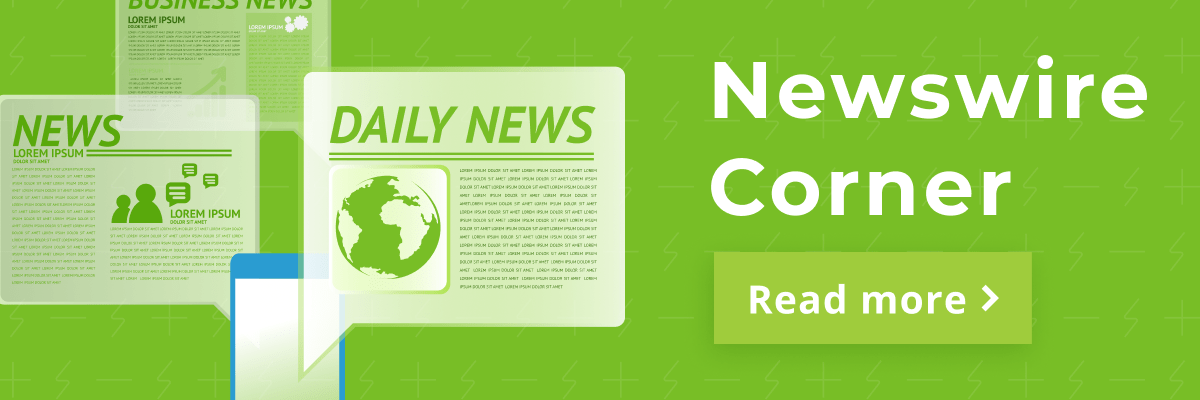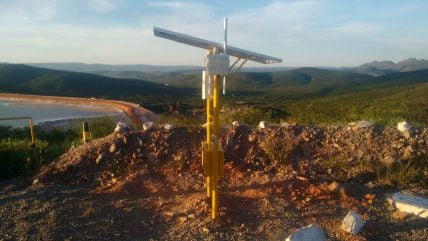Sign up for daily news updates from CleanTechnica on email. Or follow us on Google News!
In November, the people of the United States will face a stark choice between a man who has done more to promote clean energy and climate friendly policies than any president in history or a self-aggrandizing buffoon who promises to eviscerate all those “woke” policies. Nothing could make the distinction clearer than the way the two candidates addressed the 80th anniversary of D Day. One candidate was in Normandy and made a stirring, impassioned speech that celebrated the sacrifice of those who died on that fateful day 80 years ago. The other candidate barely mentioned it.
I subscribe to a daily newsletter from Heather Cox Richardson, an historian with a gift for connecting events that are happening today with their historical antecedents. Her writing often shows that the turbulent times America is experiencing now are nothing new in American history. The struggle between authoritarianism and individual liberty has existed since before America was founded. The coming election simply makes the choice more stark than usual.
Richardson’s D Day post focused on the sacrifice hundreds of thousands of soldiers made on June 6, 1944, when they stormed the beaches of Normandy in order to defeat the forces of authoritarianism. And yet, today, half of all Americans say they prefer a candidate who will impose a similar authoritarian regime on them, allegedly making America great by defying the principles which set it apart from all other nations at the time it was founded. Here is what she wrote:
President Franklin Delano Roosevelt had good news for the American people when he gave his twenty-ninth Fireside Chat on June 5, 1944. The day before, on June 4, Rome had fallen to Allied troops. “The first of the Axis capitals is now in our hands,” Roosevelt said.
The president pointed out that “it is…significant that Rome has been liberated by the armed forces of many nations. The American and British armies—who bore the chief burdens of battle—found at their sides our own North American neighbors, the gallant Canadians. The fighting New Zealanders from the far South Pacific, the courageous French and the French Moroccans, the South Africans, the Poles and the East Indians—all of them fought with us on the bloody approaches to the city of Rome. The Italians, too, forswearing a partnership in the Axis which they never desired, have sent their troops to join us in our battles against the German trespassers on their soil.”
This group of ordinary men from many different countries had worked together to defeat the forces of fascism.
But FDR warned Americans that the fall of Rome was only the beginning. “We shall have to push through a long period of greater effort and fiercer fighting before we get into Germany itself,” he said. [T]he victory still lies some distance ahead. That distance will be covered in due time—have no fear of that. But it will be tough and it will be costly.”
FDR knew something his audience did not. On the other side of the Atlantic, paratroopers, their faces darkened with cocoa, were already dropping into France, and the soldiers, sailors, and airmen of the Allies were on their way across the English channel.
The order of the day from their commander Dwight D. Eisenhower that day had read: “You are about to embark upon the Great Crusade, toward which we have striven these many months. The eyes of the world are upon you. The hopes and prayers of liberty-loving people everywhere march with you. In company with our brave Allies and brothers-in-arms on other Fronts, you will bring about the destruction of the German war machine, the elimination of Nazi tyranny over the oppressed people of Europe, and security for ourselves in a free world.
“Your task will not be an easy one,” it read, but it assured the troops that the Germans had suffered great defeats and Allied bombing had reduced German strength, while “[o]ur Home Fronts have given us an overwhelming superiority in weapons and munitions of war, and placed at our disposal great reserves of trained fighting men. The tide has turned! The free men of the world are marching together to Victory!”
Eisenhower’s public confidence did not reflect his understanding that the largest amphibious invasion in military history was a gamble. On June 5, in pencil on a sheet of paper, he had written a message to be communicated in case the invasion failed.
“Our landings in the Cherbourg-Havre area have failed to gain a satisfactory foothold and I have withdrawn the troops,” it read. “My decision to attack at this time and place was based upon the best information available. The troops, the air and the Navy did all that bravery and dedication to duty could do. If any blame or fault attaches to the attempt it is mine alone.”
On the morning of June 6, 1944, five naval assault divisions stormed the beaches of Normandy. Seven thousand ships and landing craft operated by more than 195,000 naval personnel from 8 countries brought almost 133,000 troops to beaches given the code names UTAH, OMAHA, GOLD, JUNO, and SWORD. By the end of the day, more than 10,000 Allied troops were wounded or killed, but the Allies had established a foothold in France that would permit them to flood troops, vehicles, and supplies into Europe. When FDR held a press conference later that day, officials and press both were jubilant.
Today, eighty years later, world leaders and more than two dozen U.S. veterans of D-Day gathered to commemorate that day. They met above Omaha Beach at the Normandy American Cemetery, where the remains of 9,388 Americans, many of whom were killed on D-Day, are buried.
“Hitler and those with him thought democracies were weak, that the future belonged to dictators,” President Joe Biden said in a speech. “Here, on the coast of Normandy, the battle between freedom and tyranny would be joined.”
Biden honored the visiting veterans by name—Kenneth Blaine Smith, Bob Gibson, Ben Miller, Louis Brown, Woody Woodhouse, Marjorie Stone—and recounted what they did that day: operating radar, driving an M4 tractor mounted with an anti-aircraft gun, dragging injured soldiers to safety, treating wounds, driving trucks carrying supplies, flying and fixing planes.
Echoing FDR’s chat about the fall of Rome, Biden attributed D-Day’s success to ordinary people. “Every soldier who stormed the beach, who dropped by parachute or landed by glider; every sailor who manned the thousands of ships and landing craft; every aviator who destroyed German-controlled air fields, bridges, and railroads—all—all were backed by other brave Americans, including hundreds of thousands of people of color and women who courageously served despite unjust limitations on what they could do for their nation,” Biden said.
The story of the veterans “has always been the story of America,” Biden said. “Just walk the rows of this cemetery…. Nearly 10,000 heroes buried side by side, officers and enlisted, immigrants and native-born. Different races, different faiths, but all Americans. All served with honor when America and the world needed them most.”
“Millions back home did their part as well. From coast to coast, Americans found countless ways to pitch in. They understood our democracy is only as strong as all of us make it, together.”
“The men who fought here became heroes not because they were the strongest or toughest or were fiercest—although they were,” Biden said, “but because they…knew, beyond any doubt, there are things that are worth fighting and dying for.”
“Freedom is worth it. Democracy is worth it. America is worth it. The world is worth it—then, now, and always.”
“Here we proved the forces of liberty are stronger than the forces of conquest,” Biden said. “Here we proved that the ideals of our democracy are stronger than any army or combination of armies in the entire world.”
D-Day also proved that alliances make us stronger, Biden said, a principle that after the war led to the creation of “the greatest military alliance in the history of the world,” NATO. He continued, to applause: “America’s unique ability to bring countries together is an…undeniable source of our strength and our power. Isolationism was not the answer 80 years ago, and it is not the answer today.”
“The struggle between a dictatorship and freedom is unending,” he said, and he vowed that the U.S., NATO, and allied countries will not walk away from Ukraine in its fight to resist Russia’s assault. “[T]o bow down to dictators,” he said, “means we’d be forgetting what happened here on these hallowed beaches.”
“History tells us freedom is not free,” Biden said. “If you want to know the price of freedom, come here to Normandy…and remember: The price of unchecked tyranny is the blood of the young and the brave.
“In their generation, in their hour of trial, the Allied forces of D-Day did their duty. Now the question for us is: In our hour of trial, will we do ours?
“We’re living in a time when democracy is more at risk across the world than at any point…since these beaches were stormed in 1944. Now, we have to ask ourselves: Will we stand against tyranny, against evil, against crushing brutality of the iron fist?
“Will we stand for freedom? Will we defend democracy? Will we stand together?
“My answer is yes. And it only can be yes.”
“Let us be the generation that when history is written about our time—in 10, 20, 30, 50, 80 years from now—it will be said: When the moment came, we met the moment. We stood strong. Our alliances were made stronger. And we saved democracy in our time as well.”
During the ceremony, the past and the present came together. Ukraine president Volodymyr Zelensky shook the hand of a U.S. veteran in a wheelchair. When the man tried to kiss Zelensky’s hand, the Ukraine president instead stooped and hugged him. “You’re the savior of the people,” the man said. Zelensky answered, “You saved Europe.” The exchange continued: “You’re my hero.” “No, you are our hero.”
As the crowd cheered, the old man turned to look at the younger one and said, “I pray for you.”
Another D Day
In a very real sense, November 5, 2024 will be another D Day for America. We can elect a man who honors our fallen heroes or one who dishonors them by saying he prefers soldiers who don’t get captured. We can elect a man who believes that climate change is real and must be addressed boldly or a man who will press the accelerator as the world hurtles over a cliff into a climate crisis. We can elect a man who is working overtime to bring more renewable energy to America or one who will scrap all the programs designed to encourage renewables. We can elect a man who understands how to transition to a sustainable society or one who thinks of nothing other than how to make himself wealthier at the expense of others.
On November 5, 2024, we get to choose between freedom and tyranny. By doing so, we can honor the sacrifice of American soldiers or we can choose a leader who will trample on their graves. The choice is ours, but if we choose the wrong candidate, we may not be able to undo our mistake for a long, long time. In November, please vote for a sustainable world, one where democracy flourishes and where the contributions of all people — not just a lucky few — are honored, a world where everyone has a chance to thrive. Please choose to vote for the Earth. It needs all the help it can get.
Have a tip for CleanTechnica? Want to advertise? Want to suggest a guest for our CleanTech Talk podcast? Contact us here.
Latest CleanTechnica.TV Videos
CleanTechnica uses affiliate links. See our policy here.





